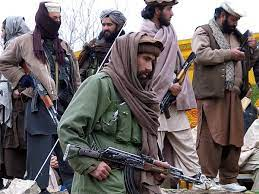Absence of public discussion means that few people understand what changed, how, and when, goes a terse comment in leading Pakistani newspaper 'Dawn'.
The article penned by Pervez Hoodbhoy, an eminent author, says: "By 2002, there were already enough jihadist groups in Pakistan to warrant a guidebook. Through their public rallies and donation boxes in markets and shops, they made their presence and identities fully known.
Pakistan had become a magnet for fighters everywhere from Europe to the Middle East and Central Asia to Indonesia".
 |
| Hoodbhoy |
Jihad-i-Kashmir and Jihad-i-Afghanistan banners, posters, and songs were everywhere.
Today, although the official website of the Pakistan Army still displays the Ziaul Haq era motto ‘Imaan, Taqwa, Jihad’, army recruiting centres no longer exhibit oversized banners bearing ‘Jihad Fi-Sabeelillah’ (jihad for Allah)".
The Modi government has sent a request to Pakistan to extradite 26/11 Mumbai attacks mastermind Hafiz Saeed.
"As you are aware, the person in question is wanted in numerous cases in India. He is also a UN-proscribed terrorist. In this regard, we have conveyed a request, along with relevant supporting documents, to the Government of Pakistan to extradite him to India to face trial in a particular case," MEA spokesman Arindam Bagchi told journalists in regular media briefing.
Hafiz Saeed has been listed as one of India's most wanted terrorists and carries a $10 million bounty placed by the US for his alleged involvement in the 2008 Mumbai attacks.
In his article Hoodbhoy says - "The path towards the present has been long and there’s much shyness about discussing the past. Absence of public discussion means that few people understand what changed, how, and when."
While many welcome downplaying jihad, others feel this was imposed on Pakistan by external actors and some dream of reversing it, he notes.
As it is Pakistan is reeling under the worst stage of economic crisis.
Poor governance and low productivity per capita in comparison with other low to middle-income developing countries have contributed to a balance of payment crisis, where the country is unable to earn enough foreign exchange to fund the imports that it consumes.
Hoodbhoy also notes that when the Taliban "finally triumphed" in 2021 in Pakistan; the Pakistani military and political class was "euphoric".
"The Afghan jihad had succeeded — India had been booted out and American plans for an orderly withdrawal had been thwarted.
Who can forget the celebrations after the fall of Kabul and then prime minister Imran Khan’s ecstatic “breaking the chains of slavery”? The Urdu press and TV channels were thrilled. ‘Our boys’ — many trained in Pakistani madressahs — had won. The cherished goal of strategic depth had finally been reached," he writes with an element of sarcasm.
Then he points out -- "...But within months, the euphoria turned into sulking gloominess. Those who brought disaster to our doorstep will not talk about it. Therefore, it is all the more important to keep reminding ourselves of just how and why it all happened. That story must start in 1987....". There is a reference to Pakistan's policy towards Kashmir.
And then he makes a rather very objective analysis:
"Thereupon Pakistan’s planners hit upon the bleed-India-with-a-thousand-cuts strategy accompanied by flat denials of involvement.
This seemed an ideal low-cost option for eventual victory, a means to change an otherwise unchangeable stalemate. India’s wrongdoing became an excuse for creating a militarised Pakistani security state that, for selfish institutional reasons, sought to keep Kashmir boiling forever.
Fortuitously, the Soviet-Afghan war had just ended leaving behind a surplus of battle-hardened fighters hungry for new challenges.
Militants such as Hafiz Saeed’s LeT and Masood Azhar’s JeM were seen as well-suited for the task. Others, such as Sipah-i-Sahabaand Lashkar-i-Omar, were sectarian and aimed against Baloch nationalists. Yet others — the most important being TTP — were unintended by-products. "
ends








No comments:
Post a Comment